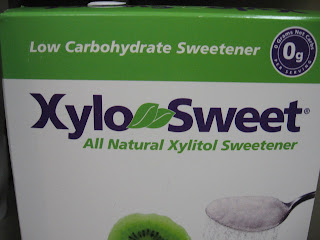
Answer:
Up until quite recently, my response to “My dog ate gum” would have been “No worries. Everything will come out all right in the end,” but not any more. Now, I double-check what kind of gum we are talking about. As astute readers noted, the key ingredient here is xylitol, which is TOXIC to dogs.

Xylitol is a sugar alcohol found in many sugar-free products, including gum, mints, chewable vitamins, oral care products, and in a granulated form used for baking.


"Natural" does not always equal "safe."
Long popular in
Despite its many virtues for humans, xylitol can be deadly in dogs. The first reported effect was to cause a sudden and severe drop in blood sugar, as xylitol stimulates the release of six times more insulin than would be expected from an equivalent amount of sugar. The resulting hypoglycemia leads to lethargy, weakness, ataxia (incoordination), collapse, and seizures. Hypoglycemia may show up within 30 to 60 minutes of ingestion, or may be delayed for up to 12 hours.
More recently, xylitol toxicity has been associated with acute liver toxicity and with impaired blood clotting ability. Eight dogs with this syndrome were reported to the ASPCA’s
The toxic dose of xylitol is 0.1 gm/kg body weight, while liver failure results from doses greater than 0.5 g/kg body weight. Translating these numbers into something usable in the every-day world is a little harder to do, since the amount of xylitol varies from one product to another. Two sticks of gum is enough to cause a serious drop in blood sugar for a small (under 20 lb) dog, while it might take 8 to 10 sticks to affect a large (over 60 lb) dog, but these amounts are only an estimate. As for baked goods containing xylitol, again, the amount in each cookie or muffin will vary. In one case, a Standard Poodle died after eating 5 or 6 cookies sweetened with xylitol.



8 comments:
I think if it was "regular" gum, it'd be ok. It won't get stuck inside or whatever.
But sugarless has xylitol--not good. I vote toxic.
The Trident clearly shows xylitol as an ingredient and it is likely also in the Orbit. Xylitol is highly toxic to dogs. The sugarfree gums almost certainly contain artificial sweeteners that are toxic to dogs.
Fairly recently I read that products containing xylitol are toxic to dogs, so the sugar free gum is a big no no for dogs. Kathy
Don't know about xylitol, but I do wonder what the internal effects would be of eating something that "gums" up the works!
What perfect timing! Lucy found a stick of Big Red tonight in the van and chewed it up. No xylitol, no worries, thanks to The Amazing Katdoc.
She does have cinnaminny-dog breath now though...
WOW! A completely new substance of concern for dogs. My thought is--is xylitol being used in many baked products touted as lower carbs or "sugar free"--I will read labels very carefully. And redouble my efforts to not feed our dog people snack food!
So we can not eat dogs which consumes xylitol?
But my dog ate orbit sugar free and nothing happened to him months later. My dog eaten chocalate too and same thing happened.
Post a Comment